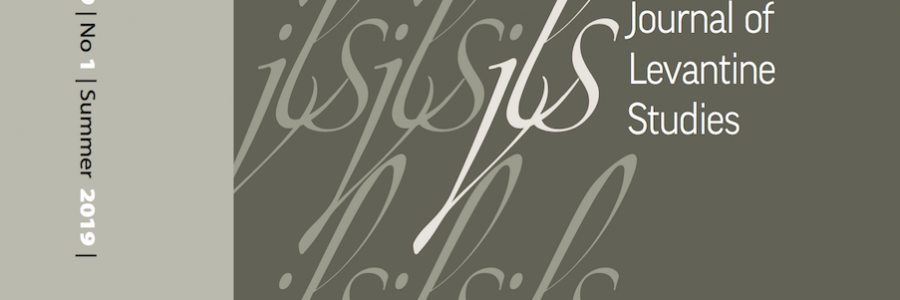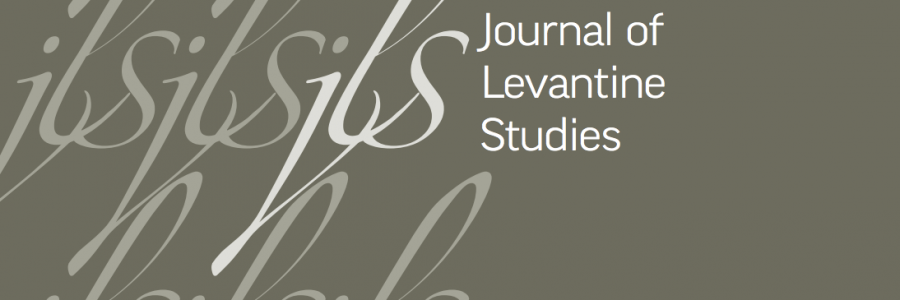-
 Add to cartQuick view
Add to cartQuick viewGendered Temporality and Space: Women in Translation from Arabic into Hebrew
Free!This article examines how women translators impacted the enterprise of translation from Arabic into Hebrew in the years 1876–2018. Their involvement is explored along three variables: genre, women’s literature, and Palestinian literature. The findings indicate a significant gender bias expressed by the low rates of women among authors and translators. At the same time, from 1978 onward we see a steady rise in the involvement of women in translation. Closer examination, however, reveals a more nuanced picture. Women’s impact on the enterprise of translation from Arabic into Hebrew does not end with the quantitative aspect; their power is rooted in the attempt to question the hegemonic values of the translation enterprise by questioning the male/gender and Zionist/national exclusivity of that enterprise.
The rise in the presence of women in the field of translation introduces three new trends. First, the preference of women translators for translating long works expresses an effort by women translators to position themselves in a central place in the translation enterprise. Second, the preference of women translators for translating works by Arab women is a conscious choice to raise women’s voices, which are repressed in both cultures. Third, the women translators, along with the Arab translators, contributed both to the placement of the repressed Palestinian narrative at the center of the translation field and to that narrative’s inclusion in the agenda of the translation enterprise.
Add to cartQuick view -
 Add to cartQuick view
Add to cartQuick viewThe Political Syntax of the Absentees: A Translator’s Reflection on Stella Maris
Free!Stella Maris, by Elias Khoury, is the follow-up novel to My Name Is Adam: Children of the Ghetto, Volume I, but the two novels can be read out of sequence, since they do not follow a linear narrative. Each is made up of multiple layers of space and time, entwined with the history and biography of Adam Danoun, as they move in a time machine-like fashion between past and future, and parallel worlds.
Add to cartQuick view -
Add to cartQuick view
Vol. 9, No. 1 (Summer 2019)
Free!Add to cartQuick view -
Add to cartQuick view
Vol. 9, No. 2 Winter 2019
$45.00Add to cartQuick view -
 Add to cartQuick view
Add to cartQuick viewWhat Is Anticolonial Translation? The Form and Content of Binational Resistance in Maktoob
Free!This essay examines translation as an anticolonial literary form in the context of contemporary translation theory and activist translation practices in Palestine/Israel. Analyzing the impact of colonial paradigms on language, culture, and translation, it demonstrates that Arabic-to-Hebrew translation practices have been used to both instantiate and challenge existing colonial structures. With a focus onMaktoob, the first Palestinian-Jewish translation collective, it goes on to analyze the methods used by progressive translation groups to resist racism, occupation, and colonialism and to democratize the Israeli cultural sphere over the past seventy years. It argues that Maktoob’s unique contribution to this tradition emerges from its commitment to a systemic decolonization of the processes surrounding translation. Binational, bilingual translation, the collective’s working model, combines content-based approaches with formal, linguistic, and structural innovations in translation processes. The explicit aim of this model is to erode colonial effects such as Orientalism, cultural erasure, ethnoseparatism, literary theft, and the linguistic division between Arabic and Hebrew, and to establish a model that promotes democratic cultural participation among Jews and Palestinians. The essay demonstrates the continued influence of cultural decolonization on contemporary literary production and offers new insights into what this means for translation theory and practice.
Add to cartQuick view -
 Add to cartQuick view
Add to cartQuick viewGuest Editors’ Note: From the Neoclassical to the Binational Model of Translation
Free!Literary translation—whether a branch within comparative literature, linguistics, hermeneutics, or elsewhere in the academic disciplinary maze—has grown and developed mainly in accordance with the European neoclassical tradition. The previous issue of JLS was dedicated to the critique of the neoclassical model’s supposed transparency and impartial representation of the original source, allegedly trying to reach a “fluent” translation of the original.
To cope with translation from Arabic to Hebrew under the conditions of the present time, the Translators’ Circle in Maktoob proposes a pragmatic model of translation that transcends the comfort zone and is open to negotiation and a dialogical process of movement and wrestling in a dynamic relationship of dialogue. Although the model is fraught with practical, economic, and empirical difficulties, and is not necessarily pragmatic, it relies on the philosophy of pragmatism, according to which translation is not only a textual achievement but also action in the real world, which seeks to overcome the elements of alienation and degeneration of the individual, nationalistic portrait of translation. The translation turns from a metatext, which is placed behind the text and whose function is to explain and illuminate, into a social text, as a basis for communication and for expression of collective consciousness. In other words, and paraphrasing Ferdinand de Saussure’s notion that language should be studied in and for itself, we argue that translation is not only a thing in and for and of itself but also a communication tool, a byproduct of a comprehensive political process. To this end it expands the concept of intertextuality from hermeneutics to sociology. That is, intertextuality is not just an encounter between textual units, as is commonly the case in the fields of hermeneutics, linguistics, and literature, but also an interactive sociological mechanism based on encounter and reciprocity between people.
Add to cartQuick view
- Home
- About JLS
- Issues
- Vol. 9 No. 1 | Summer 2019
- Vol 8 No 2 Winter 2018
- Vol. 8, No. 1: Summer 2018
- Vol. 7, No. 2: Winter 2017
- Vol. 7, 1: Summer 2017
- Vol. 6, Summer/Winter 2016
- Vol. 5, No. 2 Winter 2015
- Vol. 5, No. 1 Summer 2015
- Vol. 4, No. 2 Winter 2014
- Vol. 4, No. 1 Summer 2014
- Vol. 3, No. 2 Winter 2013
- Vol. 3, No. 1 Summer 2013
- Vol. 2, No. 2 Winter 2012
- Vol. 2, No. 1 Summer 2012
- Vol. 1, No. 2 Winter 2011
- Vol. 1, No. 1 Summer 2011
- Blog
- dock-uments
- Subscribe
- Submit
- Contact



